INTRODUCTION
The regulations relating to ship source pollution in Turkish waters are stricter than those prescribed by MARPOL and their enforcement is exacting. This Risk Bulletin focuses on the heightened shipboard vigilance required, as supported by MMIA’s ‘Turkish Waters Ship Source Pollution Prevention Checklist’.
BACKGROUND
Members trading in or transiting Turkish waters are referred to MMIA Risk Bulletin No. 69, May 2023, Turkish Waters Marine Pollution: Strict Regulation and Extraordinary Fines. This RB provides the full details of the applicable Turkish ship source pollution law (Turkish Environmental Code, Law No. 2872, as amended) inclusive of offences, the establishment of guilt and the 2023 gazetted fines.
NOTE: The 2025 fines schedule increased by 44% from the 2024 schedule (reportedly to adjust for inflation) and a helpful explanation is provided by the Turkish maritime lawyers Ersoybilgehan website.
Focusing now on ship source pollution loss prevention, the MARPOL Convention provides the principal regulation as enacted into national law. However, ‘grey water’ discharges (from shipboard washbasins, showers, galleys and laundries) into coastal waters from cargo ships (vessels carrying not more than 12 passengers) is not specifically prohibited by the MARPOL, Art. IV provisions
Members are reminded that the scope of national/coastal state law may legitimately exceed MARPOL requirements. Turkish national law does so by forbidding the discharge of ‘grey water’ from all vessels – inclusive of cargo vessels – into Turkish waters. Additionally, the interpretation and application of Turkish ship source pollution regulation by the Turkish authorities is strongly supportive of the protection of the environment.
NOTE: The current ‘gap’ in MARPOL prohibition of cargo ship grey water discharge has long been in contention at the IMO. Consideration of such a prohibition continues, but no IMO consensus has yet been reached. In addition to Turkiye, other countries banning the discharge of cargo ship grey water under national law include Finland, Norway and the US.
TURKISH WATERS SHIP SOURCE POLLUTION PREVENTION CHECKLIST
MMIA’s recommended Turkish Waters checklist – as below – has been created by reference to MARPOL and Turkish national law requirements, information from Turkish P&I correspondents and maritime lawyers and current marine industry best practice.
| MMIA ‘Turkish Waters Ship Source Pollution Prevention Checklist’ | ||
| No. | Departmental Risk Focus | Preventative Action Required |
| 1.0 | Shipmaster | |
| 1.1 | Master/Dept. Heads Conference | Master/Ch. Off. /Ch. Eng./Ch. Cook to confer on any aspects of ship design or condition requiring modification or rectification to meet Turkish Waters prohibitions (e.g. grey water discharge). |
| 1.2 | Crew Awareness Meeting | Convene ‘all of crew’ meeting prior entry Turkish waters to explain heightened pollution prevention requirements and affirm necessity for strict compliance. |
| 1.3 | Pollution Notices/Posters | Post precautionary notices and posters on the bridge, in the ER control room, galley and mess rooms. |
| 1.4 | Master’s Responsibility | Overall supervision of all Turkish Waters Pollution Control measures as implemented by Dept. Heads. |
| 2.0 | Deck Department /Chief Officer | |
| 2.1 | External Deck Washing | No deck, accommodation or any other external washing which permits water runoff into the sea. |
| 2.2 | Cargo Hold Cleaning | No overboard disposal of any cargo hold debris. |
| 2.3 | Cargo Hold Washing | Permissible only if Deck and Engine Room depts. enable all wash water to be pumped out through the hold bilge system into a designated ballast water holding tank. |
| 2.4 | External Hull Painting | No overside chipping, scraping or painting permitted. (NOTE: To prevent water pollution by debris or paint.) |
| 2.5 | Anchor Wash Valves | Anchor wash valves (normally connected to fire main) must be shut and kept closed while ship is in port or alongside. |
| 2.6 | Hydrostatic Testing | No hydrostatic pressure testing of cargo hold/tank or ballast tank air pipes. |
| 2.7 | Hatch Cover Testing | No hatch cover hose weathertightness testing. NOTE: Ultrasonic hatch testing provides an alternative. |
| 2.8 | Ballasting | Duty Deck and Engine Officers must ensure that water ballast tanks do not overflow. |
| 2.9 | De-Ballasting | De-ballasting must be in strict accordance with the Ballast Water Management Convention (BWM). NOTE: BWM D-2 Cert. required for Turkish port entry. |
| 3.0 | Engine Department / Chief Engineer | |
| 3.1 | Bunkering and Internal Bunker Transfers | All Bunkering and Bunker Transfer operations to be conducted in strict accordance with MARPOL, flag state IOPP Certificate obligations and approved SOPEP requirements, inclusive of: Overflow containment plugs fitted.Secure installation of scupper plugs. Ready access to spill control materials and equipment. |
| 3.2 | Bunker Spill Control (SOPEP) Drills | Conduct and record a SOPEP drill prior entry into Turkish Waters. Identify and rectify any non-conformities in crew training, equipment or control and clean-up materials. (NOTE: Prompt crew control and clean-up of bunker spills should entitle a reduction in Turkish authority penalties and fines.) |
| 3.3 | Exhaust Gas Cleaning Systems (EGCS) | If open loop EGCS is fitted, ensure transition to closed loop mode to prevent discharge to sea from the scrubber tower. Otherwise, ship must only use sulphur compliant fuel while in Turkish Waters. |
| 3.4 | Environmentally Acceptable Lubricants (EALs) | All Rudder Stock and Stern Tube lubricants in use should be checked to ensure EAL certification and compliance with OECD regulations. |
| 3.5 | Oily Water Slop Disposals to Barges or Shore Tanks | All oily slop disposals require: Written permission from the appropriate port authority.Evidence of the slop recipient’s port authority license to receive & dispose of oily water slops.Same degree of care and attention required during Bunkering and Bunker Transfer. Entry of full details to MARPOL oily water record book. |
| 3.6 | Overboard Discharge Valves | All overboard discharge valves (as listed below) to be sealed with numbered seals and padlocked with keys secured by the Ch. Eng. Oily water separator discharge. Water ballast discharge. All bilge discharges including cargo holds, pump room, void spaces and engine room. Sewage/black water holding tank discharge.If fitted (not MARPOL obligatory for cargo ships), grey water treatment holding tank discharge. |
| 3.7 | Fire Pump and Fire Main | Fire main not to be pressurised except on Master’s or Chief Engineer’s orders & for emergency purposes only. |
| 4.0 | Catering Department / Chief Cook | |
| 4.1 | Waste Storage & Disposal | All waste disposal overboard strictly prohibited. Storage on board and disposal ashore or to lighters must be conducted and recorded in strict accordance with ship’s approved MARPOL Garbage Plan. |
| 4.2 | Galley Sink & Floor Drains, Laundry Rooms, Showers and Washbasins, | Check all galley and accommodation drains to confirm discharge into ship’s grey water central system and designated holding tank and not directly overboard. (NOTE: If grey water discharge central system not fitted and grey water drains discharge directly overboard, then necessary to secure/seal all galley sinks and drains, shipboard laundry rooms, baths, washbasins and showers. |
MEMBER ACTION
Members trading into or transiting Turkish waters should review the MMIA checklist above and then confer together with their ship masters, ship managers and DPAs. This process should include consideration of ship specific requirements for each vessel such as:
- The design and installation of a grey water central discharge and holding tank system, if any.
- Alternatively, if grey water is discharged overboard from a vessel through individual drain discharges, the steps which must be taken to secure and seal all such discharges while the vessel is in Turkish Waters.
- Whether an open loop ECGS system is fitted and, if so, whether it is of the ‘hybrid’ type that can be switched to closed loop?
- Alternatively, whether a Turkish regulation compliant closed loop ECGS system is fitted?
- If no ECGS is fitted, whether the vessel is in full compliance with MARPOL Annex VI obligations regarding the use of 0.5% or less sulphur compliant fuels as well as the 0.1% or less sulphur fuels required for entry into designated Emission Control Areas (ECAs) and Turkish ports.
NOTES:
- Turkiye is not an EU member but is an EU accepted ‘candidate for membership’. As such, Turkiye enforces EU requirements for all vessels to use 0.1% sulphur compliant fuel when entering a Turkish port. However, this regulation does not apply to ships transiting the Bosporus, the Dardanelles or the Marmara Sea, subject to not stopping in those areas for more than two hours.
- There are currently no designated ECAs within Turkish Waters. However, Turkish regulations designate 10 Specially Protected Areas (SPAs). For ship source pollution loss prevention purposes, SPAs should be considered as ECAs.
CONCLUSION AND TAKEAWAY
Turkiye has ratified the MARPOL Convention, and it has been enacted into Turkish law. This law is however more extensive than MARPOL regulation on the prevention of ship source pollution. It is also rigorously enforced. As such, the ship source pollution loss prevention measures applicable to Member ships and their crews operating in Turkish Waters need to be strengthened to meet stringent Turkish law and enforcement parameters. Members trading into or transiting Turkish waters are encouraged to take both prudent and priority action by reviewing and implementing the use of MMIA’s recommended ‘Turkish Waters Ship Source Pollution Prevention Checklist’. MMIA is confident that the time and effort spent will provide tangible benefits and significant savings for all concerned.


